Entrepreneur Profiles
TPAGA Co-Founder Andrés Gutiérrez on Bringing Mobile Payments to Colombia’s Unbanked
6 February 2018
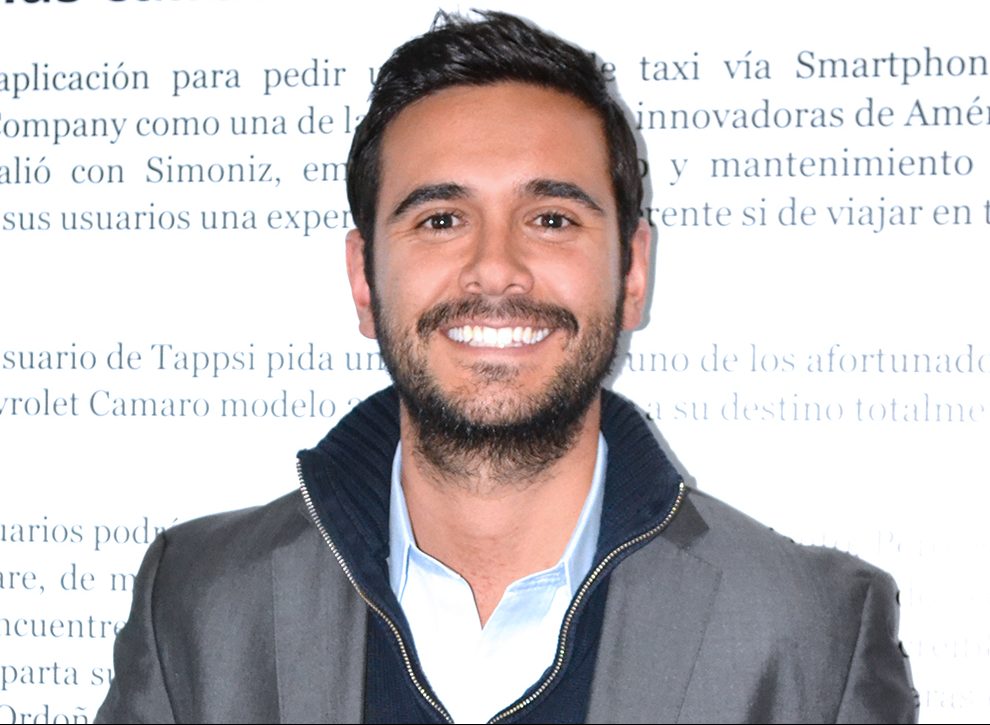
Company: TPaga
Co-Founders: Andrés Gutiérrez, Juan Salcedo, Sebastián Ortiz
Investors: Green Visor Capital, Toro Ventures, Early Impact Ventures, HackVC, Y Combinator, Greyhound Capital, Global Markets Fund
[transcription]
[english]
TPaga is a Colombia-based mobile payment platform for the unbanked. In 2017, Silicon Valley fund Green Visor Capital led a US$2.5m investment in Tpaga, and Y Combinator invested US$120k. Co-founder Andrés Gutiérrez talks with LAVCA about how TPaga emerged from running Tappsi, a Colombian taxi app that merged with Easy in 2015, the opportunity to bring mobile payments to the unbanked, and the importance of competition.
LAVCA: What is TPaga? What made you realize you wanted to do this?
Andrés Gutiérrez: TPaga is a mobile wallet for the unbanked.
Before TPaga, we developed Tappsi, the largest taxi app in Colombia, where we were confronted with the problem that 99% of the 300 thousand taxi drivers in Colombia do not have a bank account. We needed a platform that would support credit card payments, with the challenge of paying the taxi driver without a bank account.
We partnered with two banks, which had many challenges. We were desperate. We saw that the solution in countries like China, India, and Indonesia was a proprietary mobile wallet, so we developed TPaga within Tappsi.
We also realized that banks don’t have information on the incomes or expenses of the unbanked, so they can never give them loans. With TPaga, I’ll be able to show them “Hey, there are a million people earning 200 thousand pesos a day. We can offer them a micro-product.”
There is a huge market for this type of product in Colombia.
According to the World Bank, 30 million (out of 50 million) Colombians are unbanked. 90% of consumer transactions in Latin America are made in cash because this population did not have the opportunity to receive money electronically, until now.
LAVCA: Who are the founders?
Andrés Gutiérrez: We, two of the Tappsi founders (Juan Salcedo and I) and the lead developer of Tappsi (Sebastián Ortiz), founded TPaga in 2015. Today, our company employs over 30 people, and we have the first mobile wallet in Latin America that lets the unbanked make cell phone recharges, pay for public services, and make physical purchases in neighborhood stores and gas stations.
LAVCA: What is the problem you’re trying to solve?
Andrés Gutiérrez: What banks have not been able to do after 50, 100 years: How do I reach a person or a town with less than 100,000 people? You shouldn’t open a new branch; you have to use the existing infrastructure. Today, the rate of cell phone penetration in Colombia is 120%. Cell phones can already replace banks.

Cell phones can already replace banks.
We’re incorporating this informal economy, studying where money is being spent, and creating solutions so that a neighborhood store owner can use TPaga and receive money with just a QR code.
LAVCA: This could actually become a personal finance tool, because you can see where you’re spending your money, right?
Andrés Gutiérrez: Absolutely. We’re going step by step. There’s a lot of potential in personal finance and microlending. If I know exactly how much you’re spending and on what, I can ask you, “Shall I give you a loan so you can buy these products?” This is a trend not only in Colombia but also in the rest of Latin America, particularly in Mexico.
We partnered with the largest Western Union Colombia branch, and they told us, “We have a problem handling cash.” Let’s say that my aunt sends me $500. I can go to any Western Union in the country and get this money. But Western Union doesn’t know when and where I’m going to withdraw the money; it doesn’t know where the demand will be. Every day, an armored truck has to stop at every branch and make sure that it has enough cash. It’s a terribly high price, and for me, the person who’s receiving that money, I don’t have the time or the desire to go to a branch and look for it and keep it safe so that I’m not robbed.
With the Western Union–TPaga partnership, as soon as my aunt sends the money, she sends me a code, I type that code into the app, and I automatically have the money in my wallet.
LAVCA: What should someone who isn’t familiar with the payment market in Colombia understand?
Andrés Gutiérrez: Colombia has a huge market opportunity; it’s the third largest market behind Brazil and Mexico. To really understand the unbanked population in Colombia (30 million), you have to realize that this number is over three-quarters of the population of the rest of Latin America combined.
LAVCA: What type of access do Colombians have to banking services?
Andrés Gutiérrez: According to the figures we read, there are approximately 25 million debit cards and 13 million credit cards in the country. However, this doesn’t mean that there are 38 million people with cards because some people have several credit and debit cards.
 Within our niches, we’ve seen that 95% of our core users – truck drivers, domestic workers, couriers, and taxi drivers – are unbanked, and we estimate that there are over 1 million people in the on-demand economy, so we’re talking about over 900 thousand people without a bank account, 900 thousand people who are going to need a solution like TPaga so that they no longer have to depend on cash and get all the benefits of a mobile wallet.
Within our niches, we’ve seen that 95% of our core users – truck drivers, domestic workers, couriers, and taxi drivers – are unbanked, and we estimate that there are over 1 million people in the on-demand economy, so we’re talking about over 900 thousand people without a bank account, 900 thousand people who are going to need a solution like TPaga so that they no longer have to depend on cash and get all the benefits of a mobile wallet.
We’re just starting out, but we’re seeing that people are using this to purchase consumables. Of the four products we offer, which are paying for public services, reloading cell phones, gasoline, and insurance, 80% of purchases are for gasoline and reloading cell phones.
LAVCA: Do you have any competition?
Andrés Gutiérrez: Yes, and I think that anyone who says they don’t have competition is not creative enough to see who can be their competitor. Right now, no other company has the same product as us—similar ones, yes.
There are foreign companies in the same sector, like Apple Pay and Samsung Pay, but they depend on a credit card to make transactions. At the same time, mobile wallets that are working with the unbanked population only offer online services.
We are the first mobile wallet that lets someone without a bank account make physical purchases at retail stores and gas stations.
LAVCA: Have you been inspired by other models?
Andrés Gutiérrez: We’ve definitely been inspired by companies like Alipay, M-Pesa, and Paytm in India – which grew to 250 million users in five years.
LAVCA: How has the business been funded so far?
Andrés Gutiérrez: We made a SAFE; it’s Y Combinator’s standard investment instrument, and it’s the easiest, both for the entrepreneur and the investor.
With Tappsi, the question we were asked was “How much are you worth?” If you’re pre-revenue, I can’t make a free cash flow projection to see how much you make; I don’t even know how you’re going to make money. We were pre-positive cash flow. It was very difficult to figure out how much the company was worth, and we spent five months trying to see eye to eye with investors about this. When a company is that small or new, it’s very difficult to come to an objective agreement on how much it’s worth.
So what we did is “invest, and eventually, when there is a price round, this money will be converted into shares with a discount or a cap.” For example, if tomorrow TPaga is worth $100M, the investor who got involved now converts to $80M, so to speak, and so he earned exactly that profit from the worth.
The SAFE is practical and simple: It’s a three-page document, the investor doesn’t have to exercise due diligence, and they’re not legally responsible if anything happens to the company.
We fundraised US$1M and then US$2.5m more on YC from smart investors, people who have scaled companies, who have invested in fintech before. Our lead investor was Green Visor Capital, which is 100% focused on fintech. We also got VCs from Latin America, including Toro Ventures in Mexico, in hopes that they will be our ideal partner to launch in that country.
We also have angels who work at Amazon, Google, Netflix, and Facebook who are really helping to scale the company, develop flexible methodologies to get new product functionalities, hire a development team, and identify the metrics we need to assess and communicate to the company.
LAVCA: What attracted you to Y Combinator and how has it been useful to you?
Andrés Gutiérrez: It’s still too early to evaluate all the doors that YC has opened for us.
With Tappsi, we were never able to access capital in Silicon Valley because we didn’t have a bridge. Through YC, we were able to access smart money and mentors and entrepreneurs who have helped us scale.
LAVCA: This is not your first startup. Is there anything you learned from your experience at Tappsi that’s helping you now at TPaga?
Andrés Gutiérrez: I’ll take an axiom from the book The Hard Thing About Hard Things by Ben Horowitz: “hire slow, fire fast.” People are what carry a company. With the right person in the right position, you can have the best marketing strategy, the best funding, but you’re not going to be able to scale or you’re going to spend a lot of money.
With Tappsi, we hired very quickly because we didn’t know how to anticipate the needs the company was going to have later. We also launched very quickly without determining the operational or administrative load that that creates. At one point, we launched in three cities in the same week, in two countries very quickly, and we lost 70% of the capital in those markets, and we had to close them. We learned that the company has to be mature enough to launch internationally.
Something we’ve learned from companies in the United States is how to win the hearts of employees, how to communicate with them so that they understand the impact of what they’re doing on the company. We strongly believe in the well-being, retention, and care of the talent.
[/english]
[spanish]
TPaga es una plataforma de pago móvil con sede en Colombia para los no bancarizados. En 2017, el fondo de Silicon Valley Green Visor Capital lideró una inversión de US$2,5m en Tpaga, y Y Combinator invirtió US$120k. Andrés Gutiérrez, co-fundador de Tpaga, habló con LAVCA sobre cómo surgió TPaga a partir de Tappsi, una aplicación colombiana de taxis que se fusionó con Easy en 2015, sobre la oportunidad de llevar pagos móviles a los no bancarizados y la importancia de la competencia.
LAVCA: ¿Que es TPaga? ¿Qué te hizo darte cuenta de que querías hacer esto?
Andrés Gutiérrez: TPaga es una billetera móvil para personas no bancarizadas.
Antes de TPaga construimos Tappsi, la mayor app de taxis de Colombia, donde nos enfrentamos con el problema de que 99% de los 300 mil taxistas en Colombia no tiene cuenta bancaria. Necesitábamos una plataforma que permitiera el pago con tarjeta de crédito, con el reto de pagarle al taxista sin cuenta bancaria.
Nos integramos con dos bancos con muchos desafíos.Estábamos desesperados. Vimos que la solución en países como India, China, e Indonesia, era una billetera móvil propia. Así, desarrollamos TPaga dentro de Tappsi.
Nos dimos cuenta además de que los bancos no tienen información sobre ingresos y gastos sobre los no-bancarizados, así que jamás podrán ofrecerles créditos. Por medio de TPaga, voy a poder demostrarles “Oye, hay un millón de personas están recibiendo 200 mil pesos al día, podemos ofrecerles un micro producto”.
Hay un público enorme para este tipo de producto en Colombia.
De acuerdo al Banco Mundial, 30 millones (de los 50 millones) de colombianos no están bancarizados. El 90% de las transacciones de consumidores en Latinoamérica son en efectivo, precisamente porque esta población no había tenido la oportunidad de recibir dinero de forma electrónica, hasta ahora.
LAVCA: ¿Quienes son los fundadores?
Andrés Gutiérrez: Fundamos TPaga en 2015, dos de los fundadores de Tappsi: yo y Juan Salcedo. El tercer fundador es Sebastián Ortiz, el lead developer de Tappsi. Hoy somos una empresa de más de 30 personas, con un producto ya al aire y con la primera billetera en Latinoamérica en permitirle a no bancarizados hacer recargas de celular, pagar servicios públicos y hasta para hacer compras físicas como gasolina y en tiendas de barrio.
LAVCA: ¿Cuál es el problema que están tratando de resolver?
 Andrés Gutiérrez: Lo que los bancos no han podido hacer después de 50, 100 años: ¿Cómo llego a una persona o un pueblo con menos de 100.000 habitantes? No hay que abrir un banco, hay que usar la infraestructura que ya tienen las personas. Hoy en día, la penetración de celulares en Colombia es del 120%.
Andrés Gutiérrez: Lo que los bancos no han podido hacer después de 50, 100 años: ¿Cómo llego a una persona o un pueblo con menos de 100.000 habitantes? No hay que abrir un banco, hay que usar la infraestructura que ya tienen las personas. Hoy en día, la penetración de celulares en Colombia es del 120%.
El celular ya puede reemplazar el banco.
Estamos conteniendo a esta economía informal, estudiando dónde están gastando, y estamos creando soluciones para que un dueño de tienda de barrio pueda usar TPaga; con solo un QR code puede recibir dinero.
LAVCA: De hecho, podría convertirse en una herramienta de finanzas personales, porque puedes ver dónde estás gastando tu dinero, ¿no?
Andrés Gutiérrez: Totalmente. Vamos paso a paso, hay mucho potencial en personal finance, micro lending. Si yo sé exactamente cuánto estás gastando y en qué, te puedo decir: “Te doy un crédito para que puedas comprar estos productos?”. Esta no es una tendencia solo Colombia, sino que es a nivel LatAm, muy evidenciado en México.
Hicimos un partnership con el mayor agente de Western Union Colombia, y ellos nos dijeron: “tenemos una problemática de manejo de efectivo”. Digamos que mi tía me envía $500, yo voy a cualquier Western Union del país y puedo recibir este dinero. Pero Western Union no sabe cuándo dónde iré a retirar el dinero; no sabe dónde está yendo la demanda. Todos los días un camión de valores tiene que pasar por todas las agencias a asegurar que cada punto tenga suficiente efectivo. Hay un costo horrible, y para mí que estoy recibiendo ese dinero, no tengo tiempo ni ganas de ir a una agencia a buscarlo y guardarlo para que no me roben.
Por medio del partnership Western Union / TPaga, apenas me pasan ese dinero, mi tía me da un código, yo digito ese código en la app y automáticamente tengo el dinero en mi billetera.
LAVCA: ¿Qué debería entender alguien que no está familiarizado sobre el mercado de pagos en Colombia?
Andrés Gutiérrez: Colombia tiene una oportunidad de mercado enorme; es el tercer mercado detrás de Brasil y México. Si entendemos el tamaño de mercado en no bancarizados (30 millones de no bancarizados), ésta población en Colombia es más grande que tres cuartos que el resto de los países de Latinoamérica.
LAVCA: ¿Qué tipo de acceso tienen los colombianos a los servicios bancarios?
Andrés Gutiérrez: Según las cifras que leemos, hay aproximadamente 25 millones de tarjeta de débito en el país, y 13 millones de tarjetas de crédito. Sin embargo, esto no significa que hay 38 millones de personas con tarjetas, y si, que una persona tiene varias tarjetas de crédito y débito.
Dentro de nuestros nichos hemos visto que el 95% de nuestros core users – personas que manejan camiones, empleados domésticos, mensajeros y taxistas – no están bancarizados; y calculamos que hay más de 1 millón de personas del on demand economy, entonces ahí estamos hablando de que 900 mil para arriba no están bancarizados, y 900 mil personas van a necesitar una solución como TPaga, para precisamente no depender más del efectivo y tener todos los beneficios de un mobile wallet.
Estamos empezando, pero estamos viendo qué las personas están utilizando esto para hacer consumos. De los cuatro productos que tenemos, que es pago de servicios públicos, recarga de celular, pago de gasolina y seguros, el 80% está en pago de gasolina y recargas de celular.
LAVCA: ¿Tienen competencia?
Andrés Gutiérrez: Sí, y creo que cualquier persona que dice que no tiene competencia es porque no es suficientemente creativo para ver quién puede ser tu competidor. Hoy por hoy no hay ningún actor que tenga el mismo producto que nosotros—similares sí.
Hay actores extranjeros en el mismo segmento, pero que dependen de una tarjeta de crédito para hacer las transacciones, tipo Apple Pay y Samsung Pay. A la vez, las billeteras que sí están trabajando con no bancarizados solo ofrecen servicios online.
Nosotros somos la primera billetera que le permite a un no bancarizado hacer compras físicas en tiendas de retail y en gasolina.
LAVCA: ¿Se han inspirado en otros modelos?
Andrés Gutiérrez: Sin duda nos hemos inspirado en empresas como Alipay, M-Pesa, Paytm en India – que creció a 250 millones de usuarios en cinco años.
LAVCA: ¿Cómo han financiado el negocio hasta hoy?
Andrés Gutiérrez: Hicimos un SAFE, es el vehículo estándar de Y Combinator y es el más fácil, tanto para el emprendedor como para el inversionista.
Con Tappsi, la pregunta que nos hacían era: “¿Cuánto vales?”. Si eres pre-revenue no puedo hacer un free cash flow projection para ver cuánto generas, ni siquiera sé cómo vas a generar dinero. Éramos pre-cash flow positive, fue muy difícil valorar la empresa, y demoramos cinco meses tratando de ver ojo a ojo con inversionistas sobre cuánto valíamos. Cuando una empresa es tan chiquita o tan temprana, es muy difícil llegar a una valoración objetiva.
Entonces, lo que hicimos es ‘invierte y eventualmente, cuando hay un price round, esta plata se va a convertir en acciones con un descuento o con un cap’. Por ejemplo, el día de mañana TPaga vale $100M, el inversionista que entró ahorita convierte a $80M por decirlo así, y entonces él ganó precisamente esa ganancia de la valoración.
El SAFE es práctico y simple, es un documento de tres páginas, el inversionista no tiene que hacer due dilligence – y no es responsable legalmente por si algo pasa con la empresa.
Levantamos US$1M y luego de YC, US$2,5m más de smart investors, de personas que han escalado empresas, que han invertido en fintech antes. Nuestro lead fue Green Visor Capital, que son 100% focados en fintech. Recibimos también VCs de Latam, incluyendo Toro Ventures en Mexico, a la expectativa de que ellos van a ser nuestro partner ideal para lanzar en México.
También tenemos angels que trabajan en Amazon, Google, Netflix, Facebook, y que realmente están ayudando a escalar la empresa, a desarrollar metodologías ágiles para sacar nuevas funcionalidades de producto, a contratar un equipo de desarrollo, a identificar las métricas que necesitamos evaluar, cómo hay que comunicar a la empresa.
LAVCA: ¿Qué los atrajo a Y Combinator y de qué manera ha sido útil para ustedes?
Andrés Gutiérrez: Aún es muy temprano para evaluar todas las puertas que nos ha abierto YC.
Con Tappsi nunca pudimos acceder a capital en Silicon Valley porque no teníamos un puente. A través de YC pudimos acceder a smart money, y a mentores y emprendedores que nos han ayudado a escalar.
LAVCA: Este no es tu primer startup, ¿hay algo que has aprendido por tu experiencia en Tappsi que te está ayudando actualmente en TPaga?
Andrés Gutiérrez: Tomo un axioma del libro The Hard Thing About The Hard Things de Ben Horowitz: “hire slow, fire fast”. Lo que lleva una empresa son las personas. Sin la persona correcta en la posición correcta, puedes tener la mejor estrategia de marketing, el mejor fondeo, pero no vas a poder escalar o vas a gastar mucho dinero.
En Tappsi contratamos muy rápido porque no supimos prever las necesidades que iba a tener la empresa más adelante. Además, lanzamos muy rápido sin dimensionar la carga operativa o la carga administrativa que eso iba a generar. En algún momento lanzamos tres ciudades en la misma semana, lanzamos dos países muy rápidos y se nos fue el 70% del capital en esos mercados y tuvimos que cerrarlos. Aprendimos que la empresa tiene que estar lo suficientemente madura para lanzar internacionalmente.
Algo que hemos aprendido de empresas estadounidenses es cómo enamorar a los empleados, cómo comunicarles bien lo que ellos están haciendo para que ellos entiendan su impacto dentro de la empresa. Creemos mucho en el bienestar y el retener y cuidar el talento.
[/spanish]
[portuguese]
This article is not available in Portuguese. Please see English and Spanish versions.
[/portuguese]
[/transcription]
You may be interested in...
-
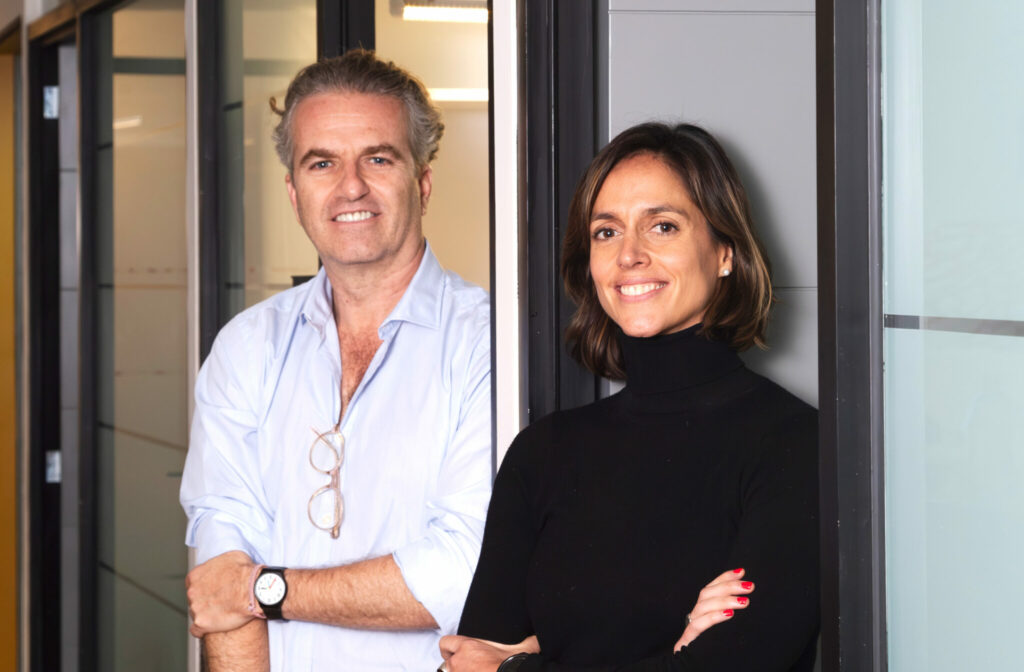
Is AI a Thing in Latin America? In Conversation with Hi Ventures
LAVCA sits down with Hi Venture to discuss their evolving thesis and vision for...
-
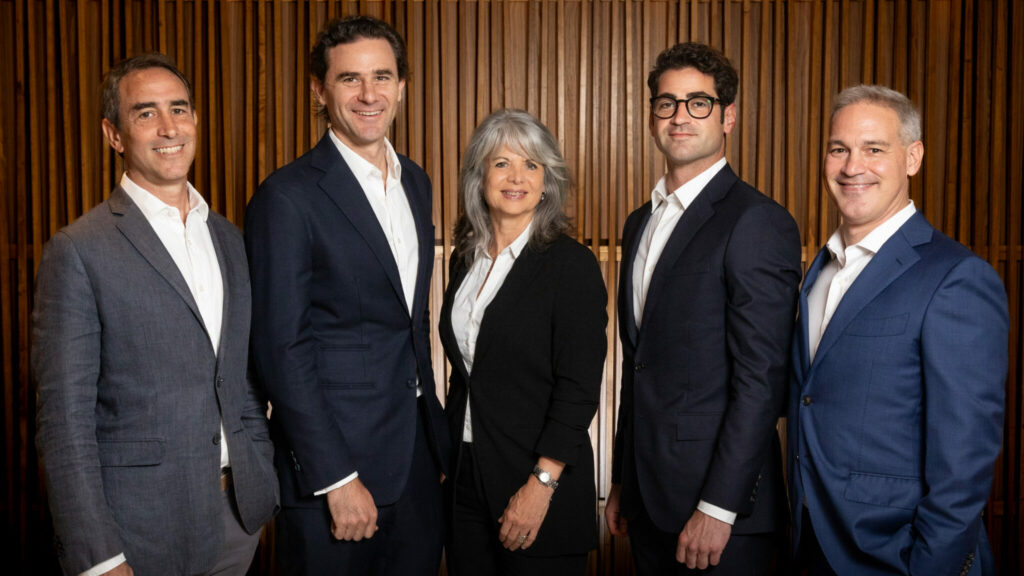
The Future of B2B Startup Investing in LatAm: In Conversation with NXTP
NXTP Ventures recently reached a USD98m final close for NXTP Fund III, its third...
-
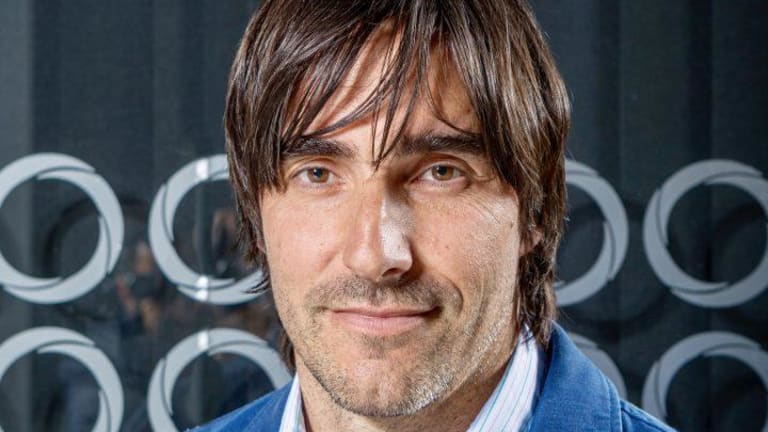
A 20-Year Journey: An Interview with Technisys CEO Miguel Santos
Company: Technisys Investors: KASZEK, Dalus Capital, Riverwood Capital Interview...
-
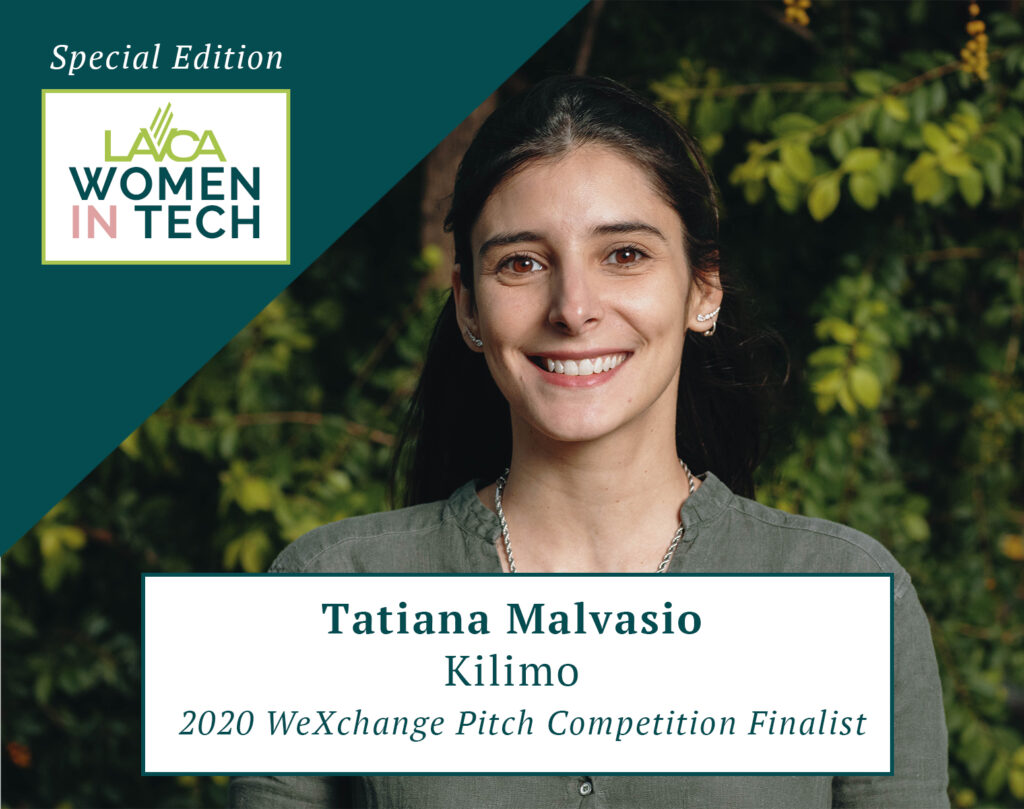
Satellite Analytics & Irrigation Systems: Interview with Kilimo COO Tatiana Malvasio
Company: Kilimo Investors: NXTP Ventures, Alaya Capital, The Yield Lab, Xpand...